- Education
- DCH School of Sonography
- Personal Qualifications
Technical Standards & Requirements
Because of the nature of our work and the services and responsibility to our patients, we must require certain abilities of our applicants.
For successful sonography program completion, you as the applicant and student must be able to meet the following requirements. Reasonable accommodations will be examined in accordance with the Americans with Disabilities Act (ADA). Any disability must be declared at the beginning of the program. If no disability is declared, the student will be expected to perform at the same standard expected of all students in the program.
- Verbal and written skills sufficient to respond promptly in communications with patients, staff and physicians.
- Sufficient sight to read requisitions and charts, observe conditions of the patient in low levels of light and to evaluate medical images on computer screens.
- Sufficient hearing to interact with and respond to patients as well as to the audible sounds of equipment.
- The ability to stand and walk for 80% of clinical time.
- The ability to lift, assist and maneuver patients in/on wheelchairs, stretchers and hospital beds without injury to patient, self or other healthcare workers and to respond to medical emergencies.
- Sufficient motor skills to manipulate, lift and reach equipment and to operate small controls on equipment.
- Intellectual and emotional skills to exercise discretion in handling confidential medical information.
- Cognitive ability to perceive and deal appropriately with environmental threats and stresses and continue to function safely and effectively during high stress periods.
- The ability to protect oneself and others from hazards in the health care environment, such as infectious disease, contaminated equipment, sharp instruments, chemical fumes and radiation.

